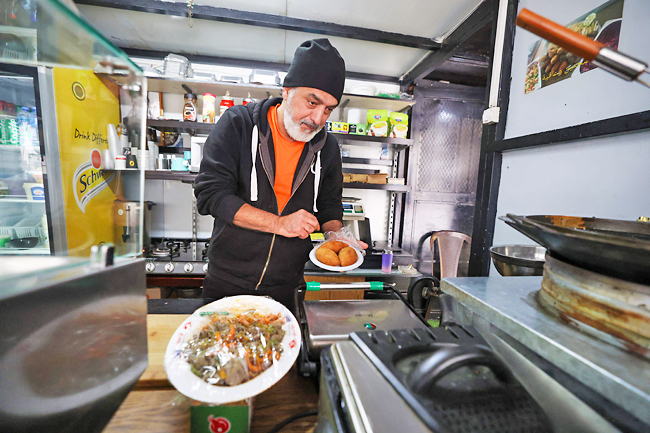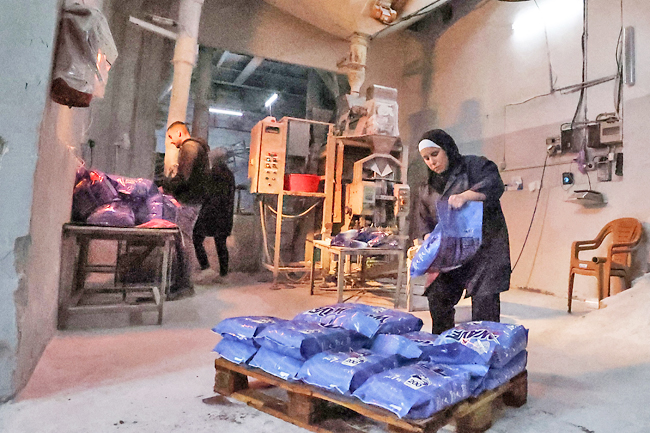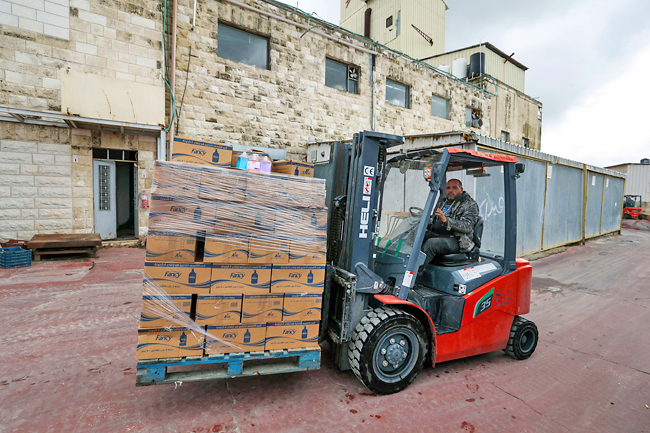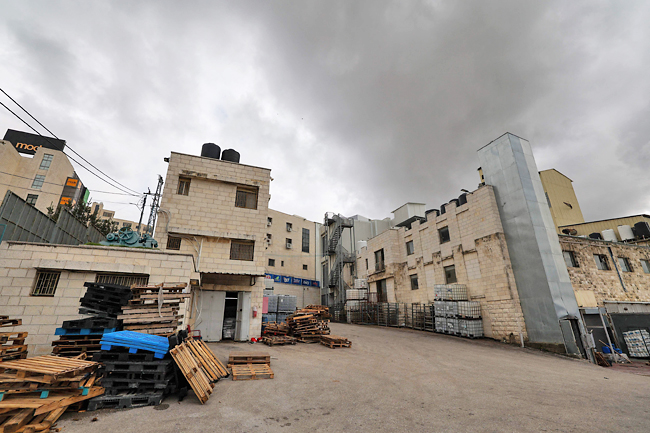RAMALLAH (AFP) – In the occupied West Bank, Hafeth Ghazawneh waits in quiet frustration for customers to visit his falafel stall, which has been deserted since the October 7, 2023 Hamas attacks in Israel.
His breakfast and lunch offerings were popular with craftsmen from workshops near Al-Bireh, the twin city of Ramallah, before the Israel-Hamas war broke out.
“Now they’re bringing their meals from home because the situation is so difficult,” Ghazawneh tells AFP, fearing he will have to shut up shop if the war in the Gaza Strip continues.
Ghazawneh said his income has plummeted from around ILS7,000 (USD1,850) per month to just about ILS2,000 (USD530).
His worsening situation reflects the current status of the West Bank economy, which is in tatters as the war in Gaza rages.
The conflict erupted after Hamas attacked southern Israel on October 7, resulting in the deaths of around 1,140 people in Israel, mostly civilians, according to an AFP tally based on the latest Israeli figures.
Israel’s blistering retaliation has killed at least 24,448 people, around 70 per cent of them women, children and adolescents, according to the Hamas government’s health ministry in Gaza.




The World Bank has estimated that the West Bank’s gross domestic product could fall by six per cent this year, while the International Labour Organization said 32 per cent of jobs have already been lost.
The unemployment rate has skyrocketed to 30 per cent, up from 14 per cent before the war, according to a researcher at the French Institute for the Near East (Ifpo), Taher al-Labadi.
Israel has also withdrawn 130,000 work permits from Palestinians in the West Bank, leaving many with no source of income.
The three million Palestinians living in the West Bank, which Israel has occupied since 1967, are not allowed to travel to Israel without a permit.
Manager of a household products and cosmetics factory in Ramallah, Bishara Jubran considers himself extremely lucky because he has been able to keep all 70 of his employees on the books.
But his business has stopped producing soaps made from Dead Sea ingredients which he used to be able to sell to hotels.
As the war rages and visitors stay away, he estimates his losses at USD200,000 last year.
He keeps his factory afloat by selling washing powder and other household products to the Palestinian market.
But none of his goods are allowed into Gaza, a key market that used to make up 20 per cent of his sales.
In the West Bank, transport costs have increased because of a growing number of checkpoints and the sealing off of certain towns by the Israeli army, Bishara said.
“Many times the truck leaves and it takes them like four or five hours to reach… the north in Nablus to find out that he cannot enter the city. So he just comes back,” he said.
Now he makes a delivery every two or three days which is down from two a day before the war.
Such factors have led to a contraction of the economy, which is now operating at 50 per cent of its original capacity, according to president of the Palestinian Chamber of Commerce, Abdo Idris.
The Palestinian economy was already “asphyxiated” and highly dependent on Israel before the war, researcher Labadi said.
Under the Oslo Accords of the 1990s, it was agreed that a political status quo would be maintained and Palestinians were promised economic development.
But this status quo was undermined by Israel’s “colonisation of the West Bank”, Labadi said, lamenting that Palestinian economic development “did not take place”.
As a result, in times of crisis, the increasingly fragile Palestinian economy finds itself “deprived of all its resources and with a very limited capacity for resilience”, he said.
Israel controls the borders of the West Bank and collects taxes on Palestinian products, which usually must then be passed on to the Palestinian Authority.
But since October 7, those taxes have not been paid.
As of December, Israel had not paid a total of ILS2 billion in taxes imposed on Palestinian products, according to the Palestinian finance ministry.
The Palestinian Authority has struggled to pay public servants since the taxes were withheld.
Civil servants told AFP their salaries for December have still not been paid.
In October, they received 50 per cent of their wages, and 65 per cent in November.
“The fear of the unknown is killing us,” Jubran said. “We don’t know if we’ll even be able to go to work tomorrow.”


